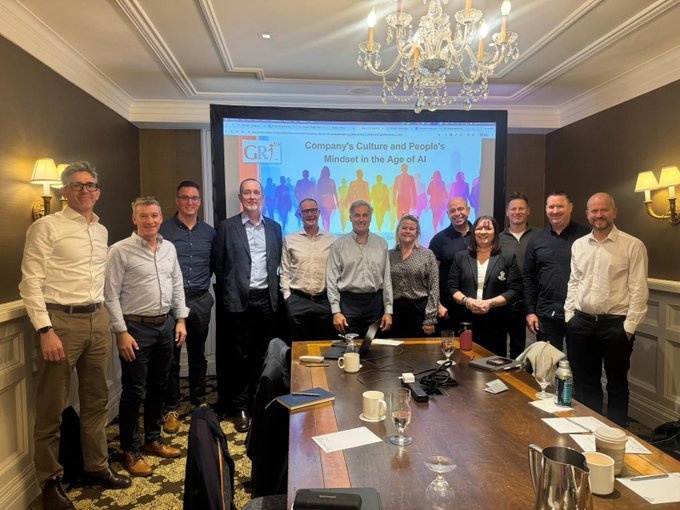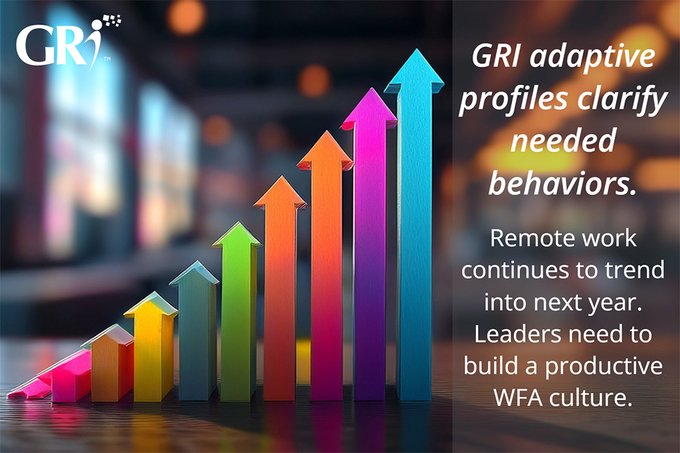Remote Work: The New Standard
Posted by Frederic Lucas-Conwell

Remote Work: The New Standard
In the new reality of business, the conversation is all about remote work. How does working remotely affect productivity? What pressure does it put on workplace culture?
At a GRI client - a global leader in workplace culture - all employees were required to work from home when the pandemic started. As was the case for many organizations. It was quickly decided that the offices would be closed permanently, sending the message that there would be no return to office locations.
The transition to 100% working-from-home was a bit of a struggle at the beginning. Arranging a quiet space for remote meetings didn’t happen overnight but everyone got organized. Video calls and personal environments in the background became part of a new reality. For the better and the worse, circumstances forced employees to adapt.
What we noticed at this client company and others where work-from-home is the new norm, is that their managerial, recruiting, and organizational aspects shifted dramatically with a refined focus on people. As a result, the “workplace” culture shifted as well. Here are a few highlights.
Management

Relationships and trust are built differently on-screen versus in-person. Employees’ personal lives can intersect more directly with their managers and teams. Leaders are finding new ways to communicate, maintain engagement and keep projects on track.
Managers need to be mindful of how their communications will impact relationships; communicate and listen with compassion and empathy.
Recruitment
In the new post-covid world, technology is heavily relied upon for all aspects of recruitment through to onboarding new employees. What will trigger a candidate’s interest? How to sell the position? How to accelerate the onboarding process so that new employees are productive from day one? And how to help employees fit into the corporate culture at a distance, integrate into a remote team?
The ‘human’ element of recruitment is now more focused on selling to candidates and preparing for their success, than checking off a list of tasks.
Organization
Earning and maintaining employee interest, commitment, and consistent energy requires collaborative and effective teamwork. This is particularly challenging in remote environments as it involves multiple layers of one-on-one relationship management.
Ongoing dialogues, transparency, trust, and open lines of communications are critical factors for successful remote teamwork.
“Employee is #1”

We heard this age-old mantra “Client is #1”. Now we start hearing “employee is #1”. What about their well-being? And their growth? Why should they waste time in traffic rather than working at home next to the gym?
With a scarcity of talent, it’s more important than ever to pay close attention to people’s needs, mental health, and psychological safety. What the organization offers in these areas is now more important than free lunch.
Know people better
For the global workplace culture leader as well as for other GRI clients, a key to their success has been the quality information on what motivates people as provided by GRI’s coaching and behavior profiles. This information is easy to obtain remotely, long before an in-person contact.
Getting to know who people are and what makes them tick can happen faster than before. The GRI provides nuanced methods and solutions to build a company culture that thrives - with or without a ‘workplace’.
Latest Articles
Groupama Successful Transformation in Romania: The GRI, Catalyst for Profound Change
The history of Groupama in Romania is an eloquent testament to resilience, strategic vision, and the transformative impact of innovative management tools. Arriving at the...
Hybrid Work: A Management Revolution
The COVID-19 pandemic has acted as an unprecedented catalyst, radically transforming our approach to work. What was once a marginal practice has become the norm for many...
Leadership 3.0: Objective Insights for People-Centric Leaders
Steve, a brilliant entrepreneur, poured his heart into his work. His team at "Innovatech" was on the brink of a major breakthrough, a new app that promised to revolutionize...



